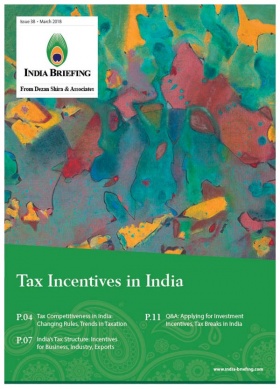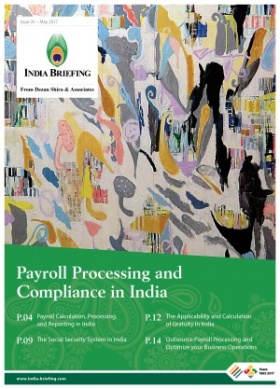India and South Africa Bilateral Ties: New Opportunities in Trade and Investment
India and South Africa share a rich cultural and varied economic history, with bilateral relations going back to the 1860s.
Although strained for a long time due to South Africa’s apartheid government, India re-established trade and business ties in 1993 after the country ended its institutionalized racial segregation. 2018 marks 25 years of India and South Africa re-establishing their economic and diplomatic relations.
To commemorate the occasion, the first India-South Africa Business Summit 2018, took place April 29-30 in Johannesburg – seen as a run up to the 10th BRICS Summit, also to be held in South Africa, later in July.
At the India-South Africa Business Summit, discussion centered on opportunities available for investment across a diverse range of sectors, including automobile, healthcare, pharmaceuticals, agro-processing, and startups.
MoUs were signed between the national investment promotion agencies ‘Invest India’ and ‘Invest SA’ to promote bilateral trade and scale up business engagement.
Push to increase bilateral trade
India is South Africa’s sixth largest trading partner in Asia, growing steadily from US$4.7 billion (Rs 318 billion) in 2007 to close to US$10 billion (Rs 605 billion) at present.
Total trade reached a peak of US$15 billion (Rs 1 trillion) in 2012 – before the global economic slowdown and domestic political factors put a brake on the rapid expansion.
Here, South Africa’s active involvement in multilateral organizations, such as the India-Brazil-South Africa Dialogue Forum (IBSA), the New Asia-Africa Strategic Partnership (NAASP), the Indian Ocean Rim Association for Regional Co-operation (IORARC), and the annual BRICS Summits has helped in the partial recovery in bilateral trade.
Both countries are now working to boost trade volumes over the next five years, to reach US$20 billion (Rs 1.3 trillion).
Bilateral focus on macroeconomic goals
A recent joint study by the Confederation of Indian Industries and Price Waterhouse Cooper confirms that Indian companies have cumulatively invested over US$4 billion (Rs 260 billion) and created more than 18,000 jobs in South Africa. At present, there are over 130 Indian companies set up in South Africa.
Several Indian companies also collaborate with Africa-based foundations, such as the FirstRand Foundation, and sponsor India-Africa exchange programs for skill development. Mostly based in the information technology (IT) sector, the programs aim to improve the employability of African graduates by providing international work experience and training.
29 South African companies have invested in India, accounting for US$790 million (Rs 53 billion), largely in the banking, financial services, and insurance (BFSI) sector.
With a view to encourage investments, the two countries signed a Double Taxation Avoidance Agreement (DTAA) in 1998.
Last year, South Africa’s Phelan Energy Group – chiefly responsible for lowering Indian solar tariffs with aggressive bids – won the contract to build a 50-megawatt solar project in the Indian state of Rajasthan.
Opportunities for investors
South Africa dropped to rank 82 in the 2017 World Bank Ease of Doing Business index, from a high rank of 39 in 2013, largely due to limited electricity access and skill deficit in the labor market.
However, implementation of legal and regulatory frameworks to mitigate these issues is fast improving. Steady infrastructure development also allows for easy global access.
With a view to encourage manufacturing investment, the South Africa government has designated Special Economic Zones that offer incentives such as lower corporate taxes, various tax relief criteria for construction and employees, and decreased value added tax to investors.
In South Africa, foreign investors should look at mature sectors such as automotive components, textiles, clothing, and footwear, which have benefited from government and private investments of over US$900 million. Key untapped sectors include health, nutrition, and wellness.
In India, biotechnology – a key strength of South African manufacturers – remains an attractive investment area; the sector now permits 100 percent FDI through the automatic route.
Similarly, the travel and tourism industry in the age of hyper local online commerce, information and communication technology, as well as the renewable energy and agri-processing sectors offer immediate investment prospects for South African firms looking to enter the Indian market.
Indian pharmaceuticals mitigate welfare challenges in Africa
Several challenging welfare conditions in South Africa have been mitigated through investments by Indian firms.
Cipla, a leading Indian pharmaceutical company, initiated the movement to provide anti-retroviral drugs (ARV) – drug therapy for HIV – at US$1 (Rs 68) per day, making this medication affordable for the millions affected in South Africa.
Ranbaxy, another Indian pharmaceutical firm, recently established a second manufacturing facility, investing US$30 million in South Africa, to make basic analgesics, anti-histamines, vitamins, and other over-the-counter medication.
Indian companies actively participate in and encourage corporate social responsibility undertakings in education, up-skilling, and women empowerment – promoting their business operations alongside local community development.
About Us
India Briefing is published by Asia Briefing, a subsidiary of Dezan Shira & Associates. We produce material for foreign investors throughout Eurasia, including ASEAN, China, Indonesia, Russia, the Silk Road, & Vietnam. For editorial matters please contact us here and for a complimentary subscription to our products, please click here.
Dezan Shira & Associates provide business intelligence, due diligence, legal, tax and advisory services throughout India and the Asian region. We maintain offices in Delhi and Mumbai and throughout China, South-East Asia, India, and Russia. For assistance with India investment issues or into Asia overall, please contact us at india@dezshira.com or visit us at www.dezshira.com.
- Previous Article Inversiones suecas en India: reformas comerciales, la iniciativa Hecho en India mejora las relaciones
- Next Article Chinese Investment into India Confirms Key Market Dynamics

















